View current page
...more recent posts
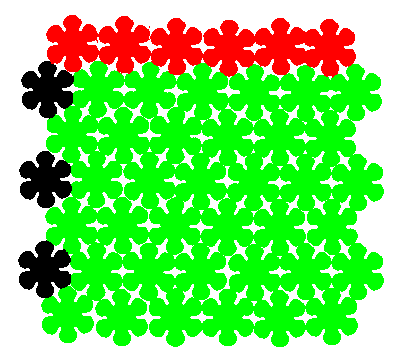



These look pretty good in sync, so the Safari browser is not recommended! Try Firefox or IE. And God only knows what RSS readers will do to this.
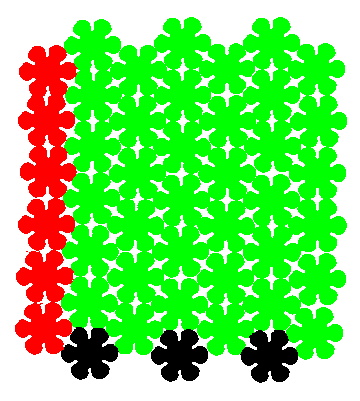
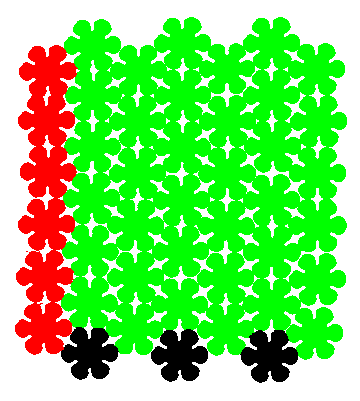
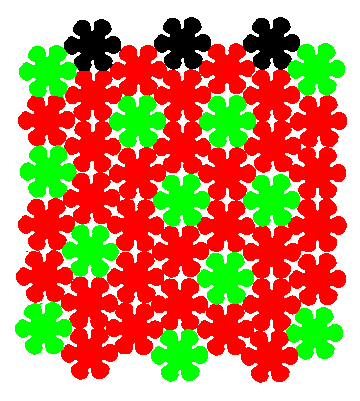
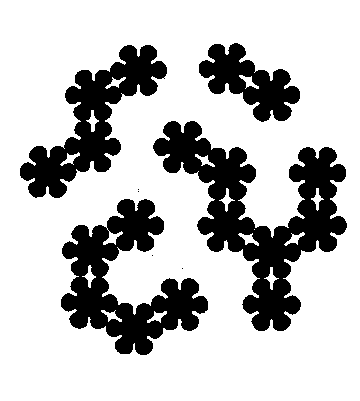
Work in process--still thinking about ways to go with this. Another John Parker flat piece remixed--a pattern of daisy appliques for a bathtub.
Below: Claire Corey, Half Past Autumn II (1Z7), 2006. Corey has a show of digital paintings coming up in Dusseldorf. I like the James Nares meets Street Tag meets Corporate Logo quality of this one. Some complex, glitchy things happen in her work that jpegs can't possibly show--this ain't net art, you have to go to one of them there galleries to see it. Still, this thumbnail works, too.
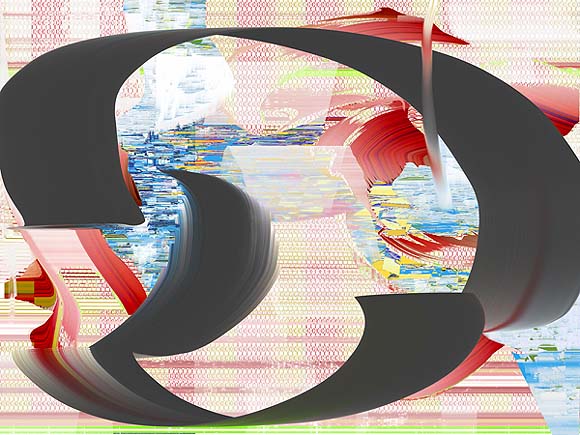
"Godzilla Scales" [mp3 removed]. John Parker remix of my Mac SE tune. The original tune was a four note chord ascending and descending the scales over the Mac's entire octave range (maybe four octaves? I forget). The computer couldn't keep up with all the changing pitch information so interesting percussive artifacts developed. John has employed some kind of time-stretching algorithm so the chord speeds up and slows down as it changes pitch. The result is exhilirating and strange.
Updated with additional information.
V for Vendetta (the movie): pretty much Hollywood crap as usual, although the anti-Bush and anti-religious right themes are bracing. I'm glad it's a hit if it means people are scared where our new Cotton Mathers are taking us. [Spoilers coming.] The first half sailed along but after Evey is taken into custody by the Finger it took too many shortcuts and liberties with Alan Moore's story and stopped being believable. The mushy movie types were hurt that Moore repudiated the film but good for him! He proved that it's possible to make a strong political argument that's nuanced and intelligent using comic book tropes and they set about disproving him with their usual poll-tested conventional wisdoms. Am re-reading the comic to get the movie out of my brain. Will post some key differences as I read, so this blog entry will change.
In the comic, nuclear explosions have destroyed Europe and Africa. Fascism emerges in England after civil society devolves into chaos. Everyone is poor. Evey is a hooker-in-training and works in a match factory.
In the movie, people have nice TVs and computers, with slick interfaces. Evey is an aspiring actress with smart clothes who works at a TV station. Upper middle class wish fulfullment--a promise to the audience that can never be broken.
The whole "I will return in one year to blow up the Houses of Parliament" schtick is a movie plot contrivance. In the book V destroys Parliament in the first chapter, and destroys Downing Street a year later, unannounced.
Another movie contrivance (probably in Ms. Portman's star contract)--the heroine tries to escape V. In the book she is 16 and much more dependent on him; she stays with him in his lair even after she knows he is a killler.
In the book V is an experimental subject in a concentration camp (as in the movie)--he is driven insane from drug injections and develops godlike powers, including a "strange ability to control people." The whole "developing the virus in the camp" subplot is the filmmakers' hackneyed invention.
Plotwise the film was very confusing leading up to the "blowing up of Parliament." V did all that by shipping around some masks? In the book we learn he had secret access to Fate, the government's main computer array. Well, the masks certainly made for a nice MTV video moment of thousands marching up to Parliament dressed as Guy Fawkes.
In the book V's mischief is the dominant story in a series of interlocking tales about life under a fascist regime, centering on people heading the various government departments--their compromises, betrayals, vices, and tawdry love affairs. It's a very adult "comic." The movie is a juvenile, Beauty and the Beast tale, with simplistic politics.
At the end of the movie, V professes his love for Evey. Just like a Tom Cruise film--a heel learns the healing power of love. V makes the declaration halfway through the book, after he has tortured Evey for months in a fake prison. It's totally creepy--his ideas of freedom and love are Est-like, as coercive and fascistic as the government's. There's none of this "until I met you I thought violence was the only way..." crapola.
In fairness to Moore, his V is a complex character and the book is filled with his thoughts and soliliquys on the "two faces of anarchy" (creator and destroyer). At the end mob violence has returned to the street and it's by no means clear what will replace the authoritarian edifice he has tipped over. In the film the message is Yea! Freedom! Boo! Slavery! which makes the Wachowskis the Tinseltown liberal version of Bush. Spare me from films with "life-affirming values"!
